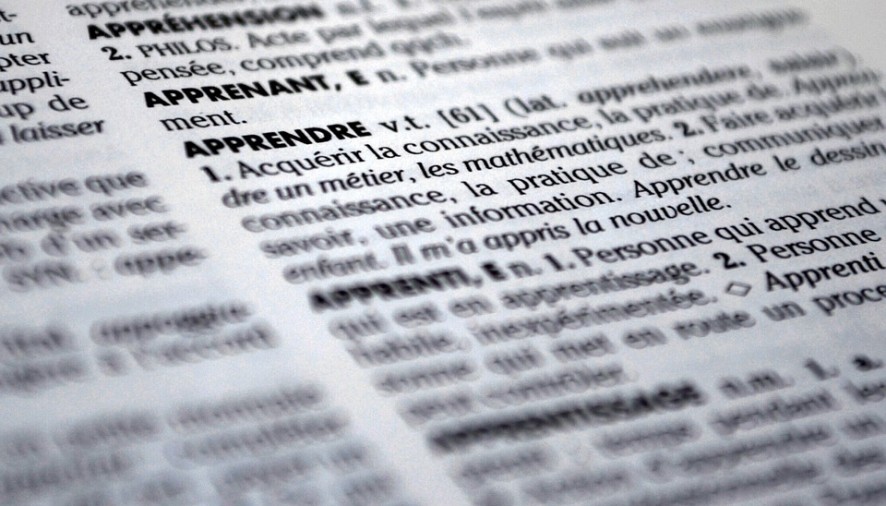The Gryphon explores recent changes in the French language, why these revisions have been proposed, and the effects that they may have upon communication.
The recent proposed changes to the French language have sparked uproar amongst the French and the rest of the world alike, amidst claims that the language has become a victim of simplification.
The renowned Académie Française is not known for embracing modifications of the French language. Since its formation in 1635, it has strived to purify the language, purging it of utterances deemed to be detrimental to the language, and, more recently, shunning Anglicisms wherever possible. However, earlier this month, this esteemed establishment was critiqued for accepting orthographical changes to certain French words.
The proposed changes are multifaceted and the Académie Française estimates that they will affect approximately 2000 words, which is equivalent to less than 4% of the total lexicon. The first change – which is arguably the one which has attracted the most criticism – regards the circumflex, which will remain above the vowels ‘a’, ‘e’ and ‘o’, but will be dropped from the vowels ‘i’ and ‘u’; words affected include ‘maîtresse’ (mistress) and ‘coût’ (cost). In the case of homonyms, for example ‘sur’ (on top of) and ‘sûr’ (sure), the circumflex will remain in order to avoid confusion. The circumflex will also remain when verbs are conjugated in tenses that necessitate it. Secondly, hyphens will be removed from certain words that were previously hyphenated, thus ‘le week-end’ will become ‘le weekend’. Additionally, the changes will permit the spellings of certain words to be simplified, for example ‘ognon’ will become an acceptable spelling of ‘oignon’ (onion).
These changes were, in fact, initially proposed in 1990 by the Conseil supérieur de la langue française (Superior Council of the French Language), amidst fears that the French language was losing popularity as a second language. The Académie Française approved them on the grounds that both spellings would be accepted as correct. The issue has only recently caught the public eye as publishers have announced their intentions to print the revised spellings in textbooks and dictionaries this year.
It was thought that the changes would alleviate difficulties with learning French, as anomalous spellings would be modified to fit with expected patterns, and, in some cases, the adjustments would eliminate the disparity between the written form of a word and its pronunciation. However, upon closer inspection the changes appear to be anything but clear: some accented characters are being removed, whist others are being added; words that were once anomalous are being altered; loan words are now to be treated as if they were originally French. Even though the new spellings remain optional, the mere existence of them is likely to cause confusion, particularly amongst speakers who have grown up with the original spellings and are resistant to change. The changes are also likely to be problematic for those learning French as a foreign language, as, whilst both spellings will be acceptable in France, it is unlikely that teachers and exam boards in other countries will accept them quite so readily.
The situation is not dissimilar to the long-standing linguistic differences between (and debates over) American English and British English. Whilst some of these differences make speakers of British English silently cringe – take ‘aluminum’, the American variant of ‘aluminium’ for example – others, such as whether sulphur should be spelt with a ‘ph’ or an ‘f’, are a topic of hot debate. When the London-based journal Nature Chemistry chose to use the spelling ‘sulfur’, the debate was reignited. However, according to the International Union of Pure and Applied Chemistry, which governs the spellings of chemical elements, the correct spelling is ‘sulfur’.
Such disparities are not limited to the realm of spelling: punctuation has also fallen victim to confusion. Lynne Truss, grammar expert and author of Eats, Shoots & Leaves: The Zero Tolerance Approach to Punctuation, laments how punctuation has fallen by the wayside. Truss says that the apostrophe “has never been taken seriously enough” and states that an understanding of the correct usage of ‘it’s’ and ‘its’ “is extremely easy to grasp”. Over time, as less emphasis has been placed on the usage of correct pronunciation, standards have slipped accordingly. Confusion and uncertainty regarding the correct spellings, grammatical constructions, and forms of punctuation inevitably lead to mistakes becoming grammatically acceptable. In many ways, the French circumflex finds its equal in the English apostrophe: both often misused or not used at all, both a vital component of language.
Whilst some languages, such as Mandarin Chinese in the 1950s, have successfully undergone reforms, others have proved more resistant to change. The attempts to standardise the French language may broaden the scope for acceptable spellings but linguistic nuances will be cast aside in the process. Since identity and language are inextricably linked, language standardisation necessitates a renegotiation of identity and so could have irreparable consequences.
Rosemary Maher
Image: Piotr Bizior

